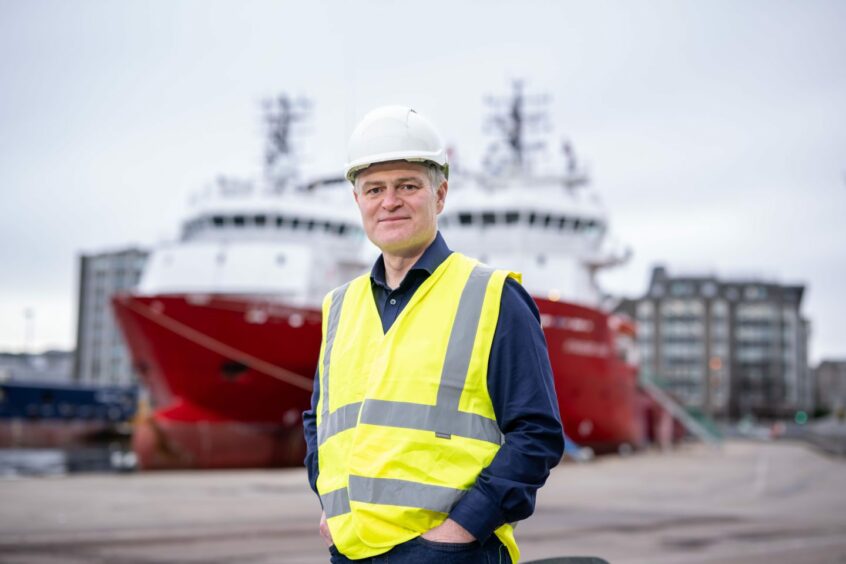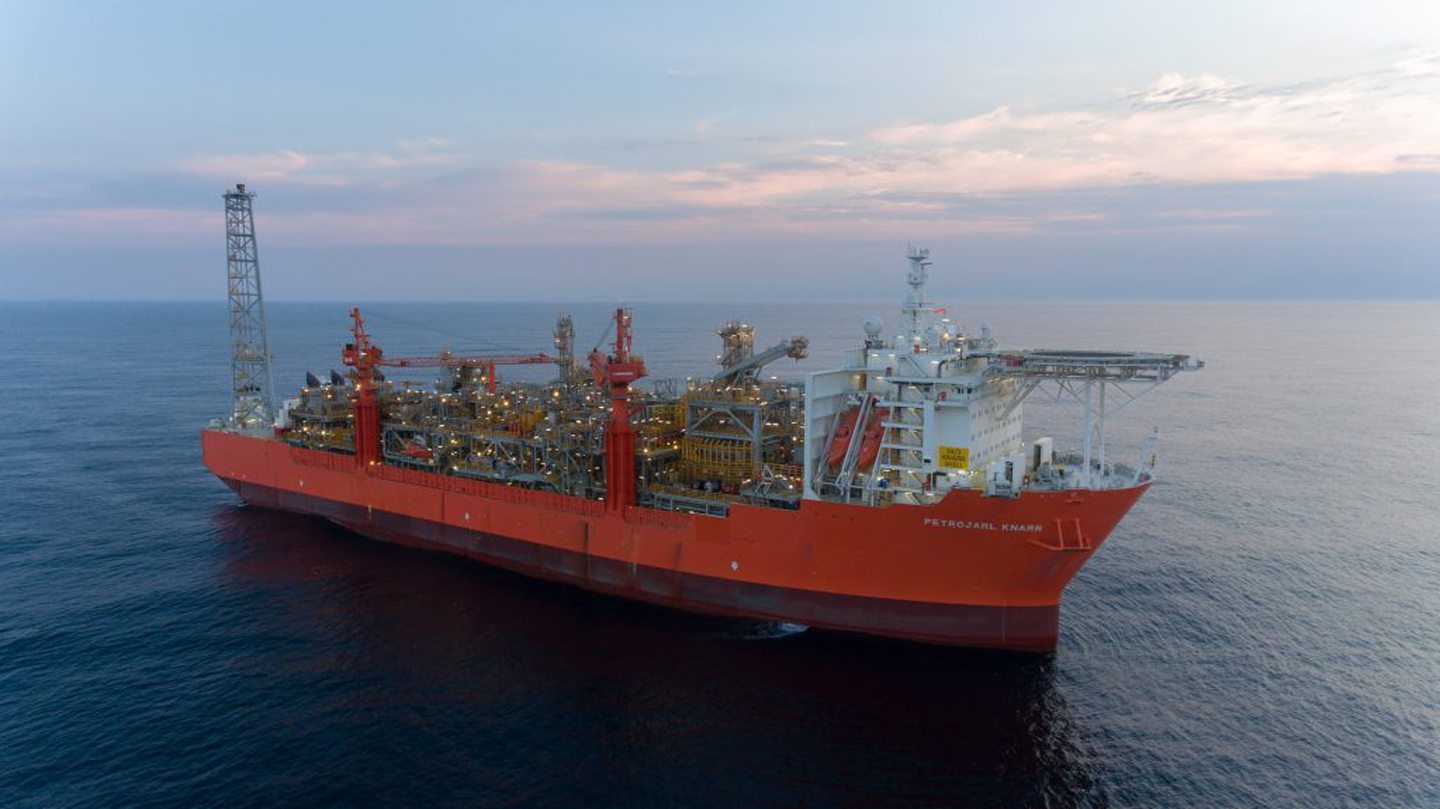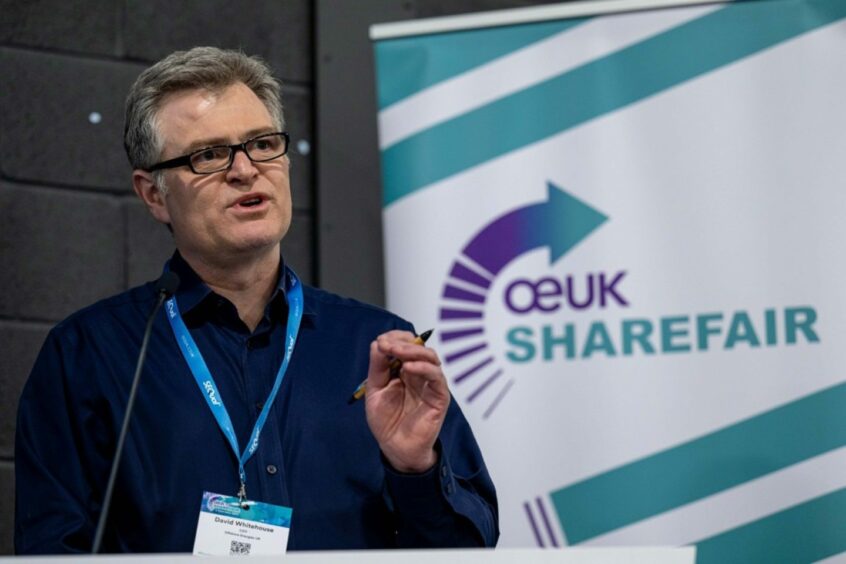
David Whitehouse, chief executive of the trade body Offshore Energies UK (OEUK) tells the Energy Voice Out Loud podcast that “Rosebank and other new developments are absolutely critical”.
Mr Whitehouse told listeners that “we are already seeing assets leaving the UK” and the decline the UK North Sea is experiencing will only be exacerbated going forward.
He explained: “We are still going to see declines in oil and gas production in the UK, but we need to slow it down, otherwise we’ll truly find ourselves in a position where our energy security is undermined.”
He added: “We have in the region of 283 fields in the North Sea, the expectation is that over 150 of those will decommission and stop producing in the course of the next decade.”
Mr Whitehouse claims that if the country is not careful “we will find ourselves importing 80% of our oil and gas”.
Stuart Payne, CEO of regulator the NSTA recently highlighted that UK refining capacity means the country is a net importer of oil, even if products from large west of Shetland fields are first sold to overseas refineries.
OPRED still on Rosebank
Recently, Ithaca Energy, a stakeholder in the Rosebank development, confirmed that the application for the west of Shetland field’s development was on the desk of OPRED.
The environmental statement remains with OPRED (Offshore Petroleum Regulator for Environment & Decommissioning) and is still due to be handed back to the main regulator, the North Sea Transition Authority (NSTA).
Ithaca chief executive, Alan Bruce said: “The environmental statement . . . it’s gotten to the point where (there’s) no more questions, but it is still with OPRED as part of their approval process.
“What needs to happen is within OPRED that will have to be approved and then it comes back to the NSTA after that.”
Last year OPRED was a letter to Rosebank operator, Equinor, where it said the environmental statement for the field “has not demonstrated” how it would meet the commitments of a pact signed by industry and the UK Government in 2021 to slash emissions.
Rosebank has been met with criticism in the past, with research from Uplft indicating that approval of the field would exceed UK carbon budgets.
However, the NSTA said it has “full confidence” in data which shows the sector is “on track” to reaching its emissions reduction target by the end of the decade, if not surpass it.
‘We are exporting our jobs and we are leaving the country poorer as a result’
This is set against a backdrop of the Labour Party claiming it would block all new licenses in the North Sea if it were to win the next general election.
However, Scottish Labour leader Anas Sarwar last night said the party would “honour” Rosebank if approval was granted by the current government.
Oil and gas firms are already struggling to justify continued investment in the county as windfall tax claims 75% of profits.
The impacts of policies like these can serve to limit the energy transition, as Whitehouse of OEUK explained: “The profits that companies need to make so that they can invest in the transition, that is disappearing.
“The people and equipment we need for the energy transition, not only is that not there now for our oil and gas needs, but it won’t be there in the future when we start talking about floating offshore wind, hydrogen and carbon storage.”
This podcast was recorded on Friday 2 June, since recording Keir Starmer has been urged not to U-turn on his policy and the Labour leader spoke to GMB Union, saying oil will be part of economy for “decades to come”.
It is for this reason that David Whitehouse believes that “Rosebank and other new developments are absolutely critical.”
He says: “Anything that we choose not to produce from Rosebank is effectively oil and gas that we will import from elsewhere.
“We are importing from countries where they don’t necessarily have the same commitments to the climate goals that we have here. We are exporting our jobs and we are leaving the country poorer as a result.”
To hear more on the OEUK chief executives’ views on Rosebank, Labour’s recent stance on oil and gas, the energy trilemma and skills within the UK, listen to the Energy Voice Out Loud podcast.
Recommended for you


 © Supplied by Altera Infrastructur
© Supplied by Altera Infrastructur © Supplied by OEUK
© Supplied by OEUK

